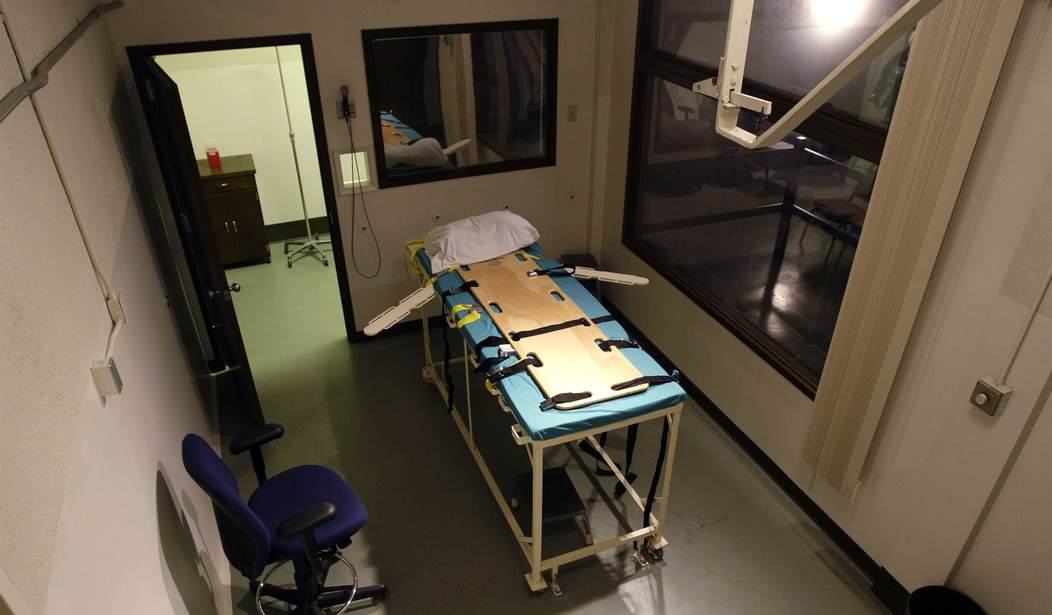A week ago, a left-wing extremist assassinated Christian conservative activist and Turning Point USA founder Charlie Kirk. Tyler Robinson, 22, could end up facing the death penalty should he be convicted of the charges brought against him.
Catholics face a bit of a conundrum when it comes to the death penalty. For 1900 years, tradition and teaching held that death was a fitting punishment for murder. But in recent times, the Catechism of the Catholic Church has been edited to say such punishment is "inadmissible" because it denies the dignity of the murderer and cuts short their opportunity for salvation.
So which is correct? Can — and more importantly, should — Catholics support Robinson getting the death penalty for assassinating Kirk?
From the first page of Sacred Scripture to the giving of the 10 Commandments, all the way to St. Paul's instructions concerning the administration of the civil sword, the Bible makes it clear when it comes to addressing bloodguilt, or murder, that the State has the authority of God and the Church to carry out the death penalty.
In Genesis 9:6, God says, "Whoever sheds the blood of man, by man shall his blood be shed." St. Paul is in lockstep with that statement when he tells believers in Christ that governing authorities "do not bear the sword in vain; for he is God's minister, an avenger to execute wrath on him who practices evil," which is a quotation from Romans 13:4.
One can clear see, just from these few verses, that the State has a God-given duty to defend innocent life and place restraints around murderous violence by using proportionate means. This teaching is not only found in Sacred Scripture, but in Catholic tradition as well.
The Catechism of the Council of Trent says that "another kind of lawful slaying belongs to the civil authorities, to whom is entrusted the power of life and death." It goes on to explain that when this power is exercised with prudence, it provides protection for the innocent and helps to secure life.
The Baltimore Catechism also states that "as God Himself punishes crime and as lawful authority comes from Him, such authority has the right to punish." In other words, the Fifth Commandment forbids murder; however, it does not strip away the legitimate, God-ordained responsibility and, where necessary, the power to punish grave offenders and to preserve the common good.
Both the Church Fathers and the Scholastics agree on this as well. St. Augustine recognized that those "endowed with the character of public authority" who dole out punishment to offenders of the law do not break the commandment "You shall not murder" when they administer justice to the wicked.
The great St. Thomas Aquinas gets even more plain and raw, saying that the slaying of a sinner might become "lawful in relation to the common good" when it is demanded by public order. It is the judge who is entrusted with this right and responsibility, not the angry mob or the private citizen.
Aquinas was a big proponent of natural law. This is what he reasoned from to reach this conclusion about the authority of the civil government to exercise the death penalty, particularly as it relates to the murder of innocent individuals.
Objections to the use of the death penalty within the Catholic Church are plentiful, including from the contemporary Magisterium. As Catholics, we shouldn't take this lightly, but should engage with it and weigh out the concerns the Magisterium addresses. The modern CCC, in Paragraph 2267, was revised to say that "the death penalty is inadmissible because it is an attack on the inviolability and dignity of the person."
Doctrinal development from the Magisterium obviously matters; however, it does not negate Sacred Scripture or natural law. Thankfully, this isn't a matter of dogma, thus it is not required for the Catholic to believe in the inadmissibility of the death penalty in order to receive the Eucharist.
The revision to the CCC in 2018 attempts to be prudent by reading the current social reality — that we now have modern detention facilities that can provide protection for civil society without executing criminals — and insists that the death penalty needs to be rejected due to human dignity. But it cannot and does not, without causing a a rupture in moral theology, remove the Scriptural and classical foundations that clearly recognize the authority of the State to impose severe penalties, including death, when it is necessary and justly called for.
Another point that needs to be stated is that prudence must be particular. The assassination of Charlie Kirk fractured the common good. When an offender's guilt is certain, after he has received due process, when the trust and safety of the community cries out for a decisive and proportionate response, the traditional case for capital punishment is still a defensible position for a Catholic.
Support for the death penalty does not mean that the human dignity of the criminal is somehow denied. In fact, since God's justice is restorative, support for the death penalty in cases of murder actually lifts up human dignity. One cannot restore a human life taken in an act of murder. Thus, the only fitting punishment that upholds the value and beauty of that life taken is for the murderer to forfeit his own.
There are a few critically important caveats to keep in mind for a Catholic offering a defense of the death penalty. There must first be a rigorous public trial with all of the proper legal safeguards in place. We must not allow any private retribution. Also, Catholics must insist on continual works of mercy toward the condemned.
We as Catholics should also be praying for the conversion of Tyler Robinson's soul. That is mercy and grace. We must insist, unless he rejects it, that a priest be sent to speak with him, at some point before his execution, about the state of his eternal soul. If we can provide many of these occasions, even better.
A faithful Catholic defense of the use of the death penalty in light of heinous crimes that are an assault not only on human life, but on God Himself, honors human dignity, while simultaneously honoring the duty and responsibility of the civil magistrate to protect the innocent and to uphold order.
In a case like the assassination of Charlie Kirk, once Robinson is proven guilty beyond doubt and all legal means are exhausted, a case for the traditional Catholic understanding of the death penalty as an act of justice can be made.
If Catholics truly believe in the sanctity of life and an ordered society, the death penalty is not a surrender to vengeance, but rather faithfulness to the long, sobering tradition that takes the sacredness of life and justice seriously.










